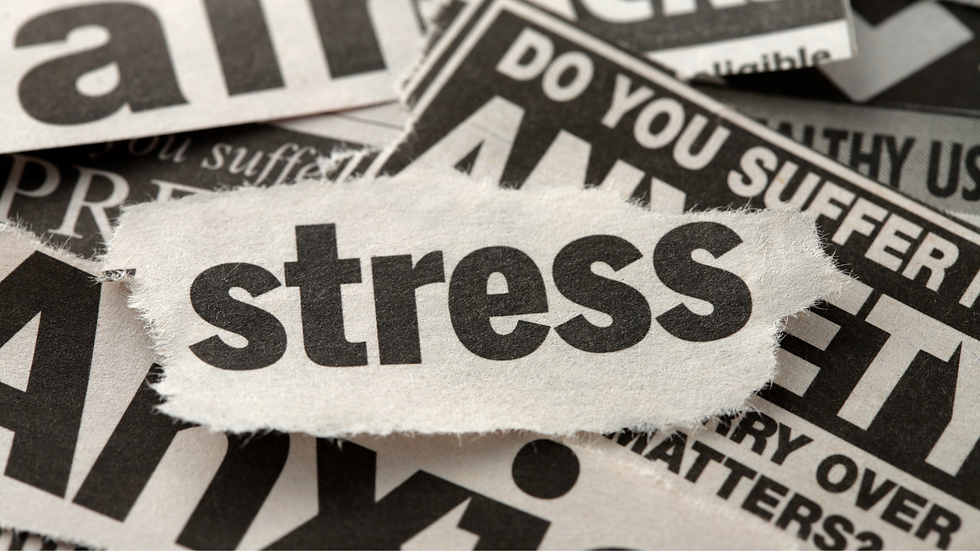How Your Beliefs About Stress Shape Your Reality
- Clardoon Health
- Jun 9, 2024
- 2 min read
Updated: Oct 3, 2024

“Whether you think you can or you think you can’t, you’re probably right.” This timeless quote, attributed to Henry Ford nearly a century ago, continues to hold profound wisdom. It speaks to the influence of our mindset on our experiences—a principle that extends to how we perceive and manage stress.
Stress: Friend or Foe?
Stress is a ubiquitous part of life, often portrayed as an adversary to be avoided at all costs.
However, recent research suggests that our beliefs about stress play a significant role in determining its impact on us. In essence, our mindset towards stress—whether we view it as debilitating or enhancing—shapes our experience of it.
A recent study conducted by researchers from Staffordshire University explored how athletes’ perceptions of stress affected their performance. Focusing on footballers and swimmers in England, the study aimed to understand how mindset interventions could influence athletes’ stress experiences during the competitive season.
Understanding the Study
The researchers gathered 94 young athletes, split into two groups: a control group and an experimental group. While the control group received no specific intervention, the experimental group participated in a series of workshops aimed at shifting their mindset towards stress from “debilitating” to “enhancing.”
The intervention proved successful in altering the athletes’ perceptions of stress. By the study’s conclusion, participants in the experimental group were more likely to view stress as a positive force that could enhance their performance. Additionally, they reported experiencing fewer negative emotions associated with stress.
Here’s How You Can Navigate Stress Mindfully
Understanding Beliefs About Stress: Reflect on your beliefs about stress. Many individuals have been conditioned to see stress as inherently harmful. By recognising and challenging these beliefs, you can adopt a more empowering perspective that acknowledges stress as a potential catalyst for growth and development.
Noticing and Naming Stress: Develop awareness of your stress responses. Identify and label your feelings of stress and move away from avoidance towards proactive problem-solving. By confronting stressors directly and taking decisive action, you can mitigate the negative impact of stress on your well-being.
As this study demonstrates, our beliefs about stress profoundly influence our experience of it. By cultivating a mindset that views stress as a natural and even beneficial aspect of life, we can transform our relationship with stress. Rather than seeing it as a hindrance, we can harness its energy to fuel personal growth and resilience.
References:
Mansell P, Sparks K, Wright J, Roe L, Carrington S, Lock J, et al. ”Mindset: performing under pressure” – a multimodal cognitive-behavioural intervention to enhance the well-being and performance of young athletes. J Appl Sport Psychol. :1–20.

Comments